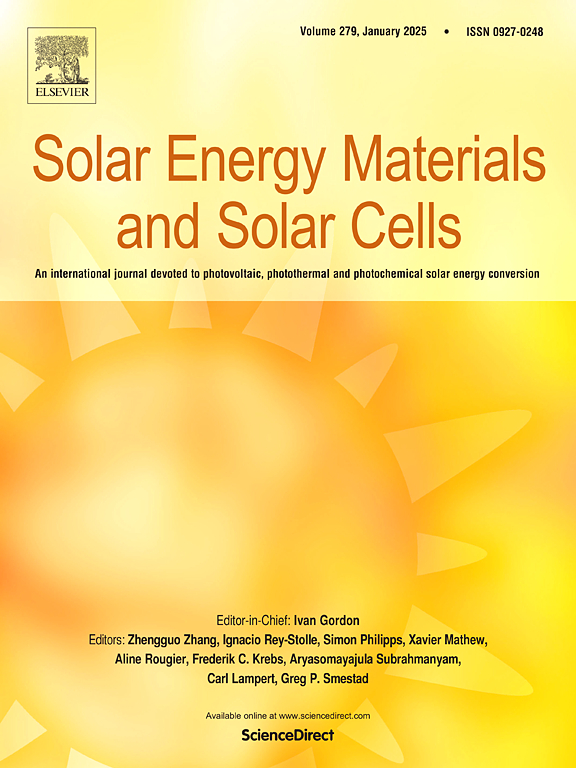New metrics for evaluating energy efficiency of solar electric vehicles based on self-consumption and self-sufficiency
IF 6.3
2区 材料科学
Q2 ENERGY & FUELS
引用次数: 0
Abstract
Solar Electric Vehicles (SEVs), which generate electricity through onboard photovoltaic panels, are emerging as a sustainable transportation alternative. However, conventional energy efficiency metrics for internal combustion engine vehicles and battery electric vehicles are inadequate for capturing the unique energy flow characteristics of SEVs. This study proposes a new energy efficiency evaluation framework for SEVs using two metrics: Self-Consumption Rate () and Self-Sufficiency Rate (). These metrics distinguish between self-generated energy and externally supplied energy, enabling a more accurate assessment of SEV energy utilization. Simulation analyses were conducted under various environmental conditions and vehicle specifications, considering solar power generation, battery charge-discharge behavior, and power consumption patterns. The results demonstrate that and effectively reflect the sensitivity of SEV performance to changes in weather conditions and operational scenarios. For example, and were 84 % and 74 % on clear days, while reaching 90 % and 46 % on cloudy days, highlighting the capability of the proposed metrics to capture energy variations in energy autonomy. The evaluation results based on the conventional SCR and SSR calculation methods were compared with those derived from the newly proposed framework. The proposed framework offers valuable insights for assessing energy independence and grid dependency in future solar-powered mobility systems and Vehicle-to-Everything (V2X) applications.
基于自用和自给的太阳能电动汽车能效评价新指标
太阳能电动汽车(sev)是一种通过车载光伏板发电的可持续交通工具。然而,传统的内燃机汽车和纯电动汽车的能效指标不足以捕捉sev独特的能量流特性。本研究提出了一个新的能源效率评估框架,使用两个指标:自用率(SCRSEV)和自给率(SSRSEV)。这些指标区分了自产能源和外部供应能源,从而能够更准确地评估SEV能源利用情况。在各种环境条件和车辆规格下进行了仿真分析,考虑了太阳能发电、电池充放电行为和功耗模式。结果表明,SCRSEV和SSRSEV能有效反映SEV性能对天气条件和作战情景变化的敏感性。例如,在晴天,SCRSEV和SSRSEV分别为84%和74%,而在阴天达到90%和46%,突出了所提出的指标在能源自主中捕获能源变化的能力。将基于传统SCR和SSR计算方法的评价结果与基于新框架的评价结果进行了比较。该框架为评估未来太阳能移动系统和车联网(V2X)应用中的能源独立性和电网依赖性提供了有价值的见解。
本文章由计算机程序翻译,如有差异,请以英文原文为准。
求助全文
约1分钟内获得全文
求助全文
来源期刊

Solar Energy Materials and Solar Cells
工程技术-材料科学:综合
CiteScore
12.60
自引率
11.60%
发文量
513
审稿时长
47 days
期刊介绍:
Solar Energy Materials & Solar Cells is intended as a vehicle for the dissemination of research results on materials science and technology related to photovoltaic, photothermal and photoelectrochemical solar energy conversion. Materials science is taken in the broadest possible sense and encompasses physics, chemistry, optics, materials fabrication and analysis for all types of materials.
 求助内容:
求助内容: 应助结果提醒方式:
应助结果提醒方式:


